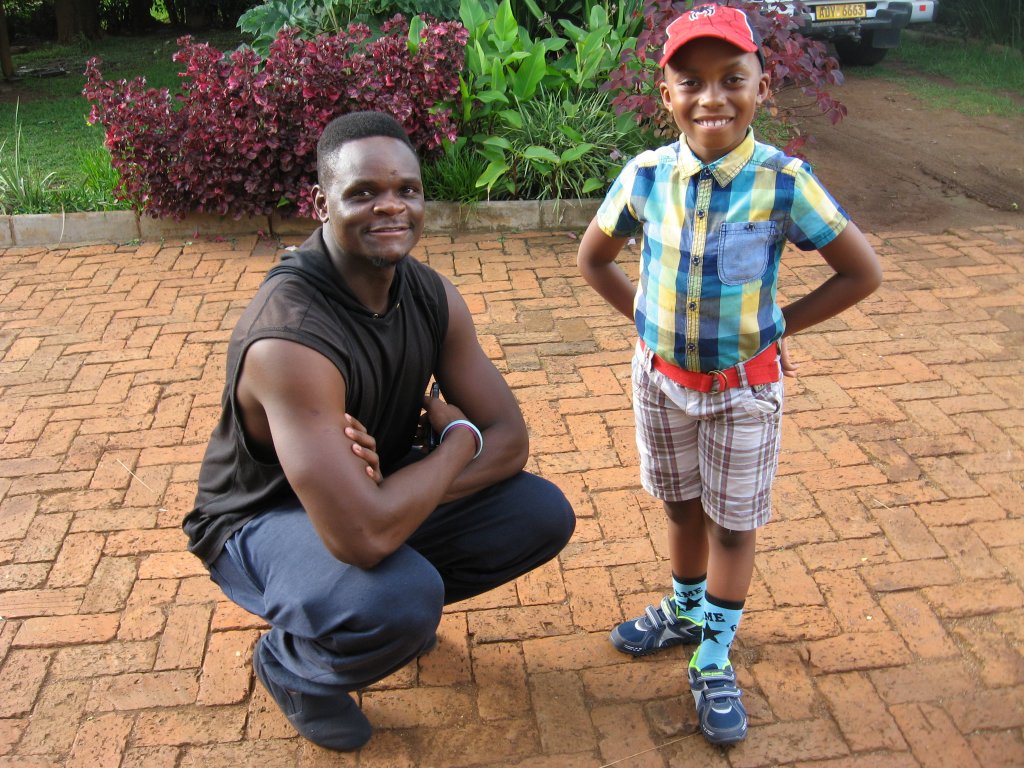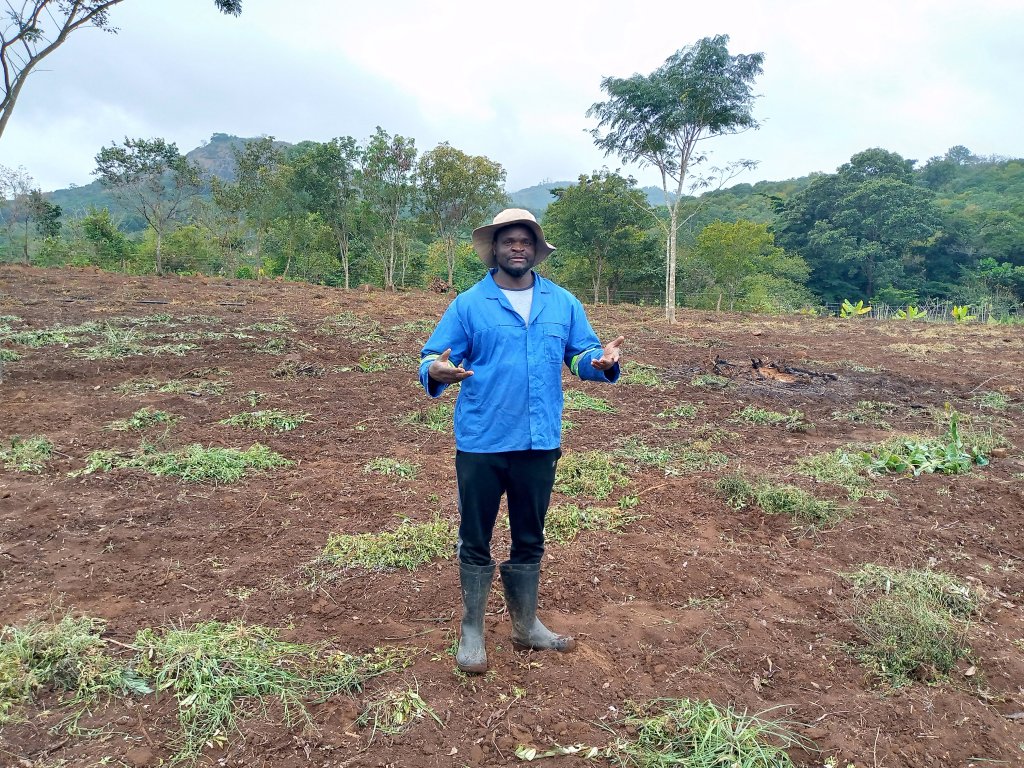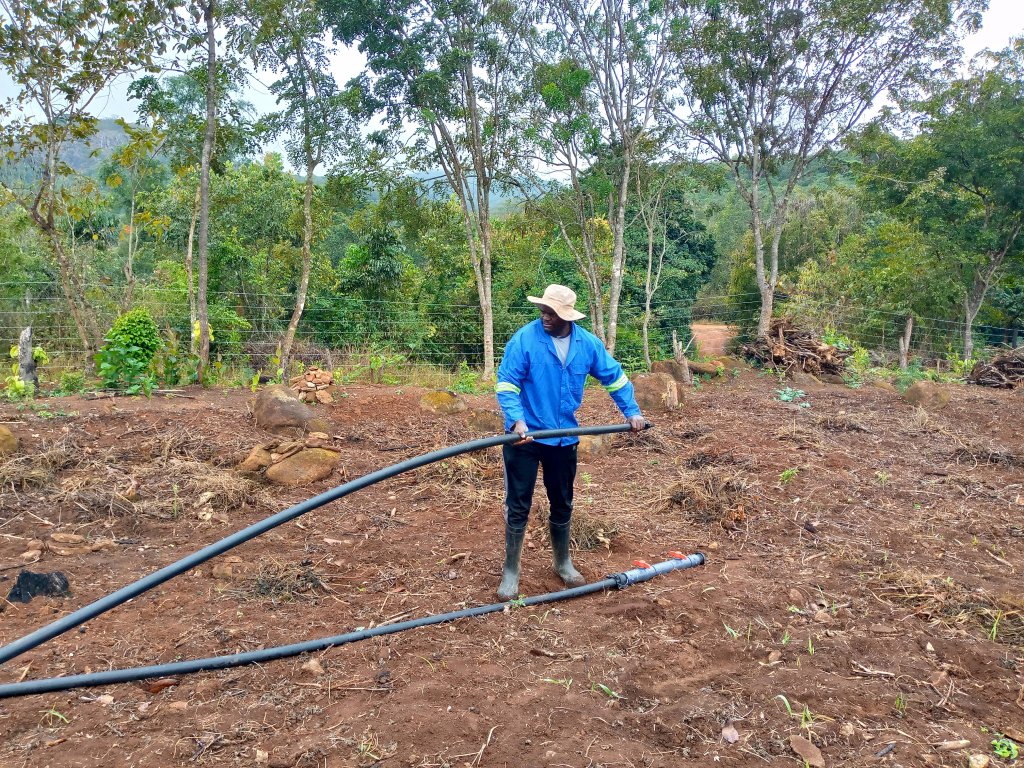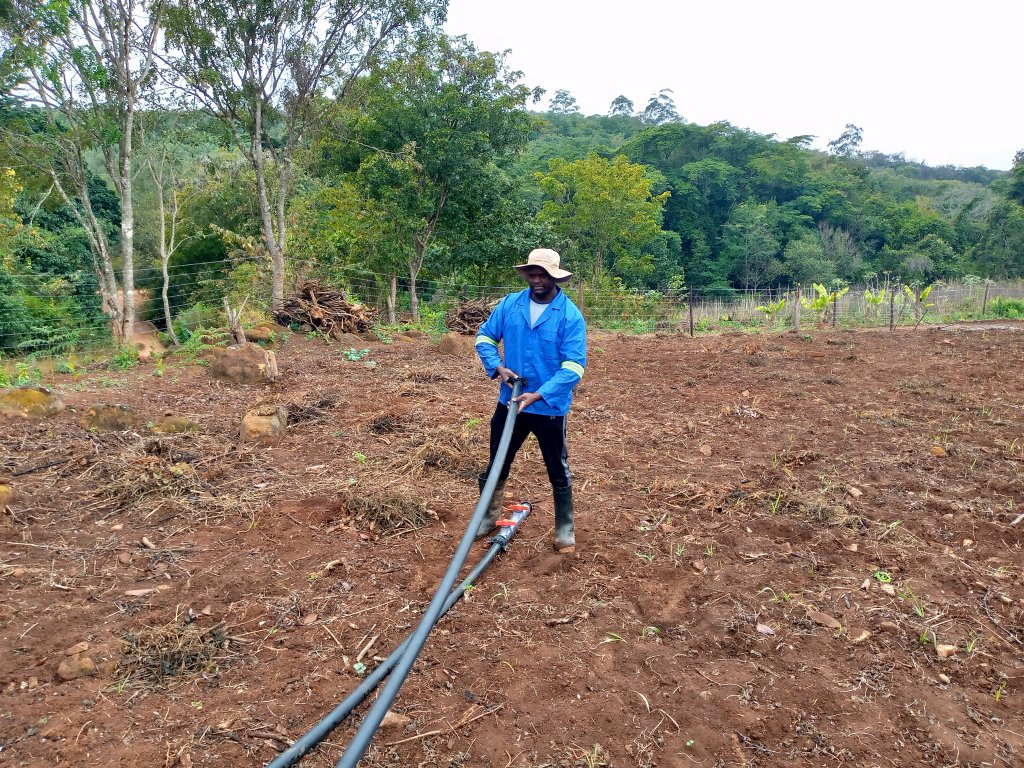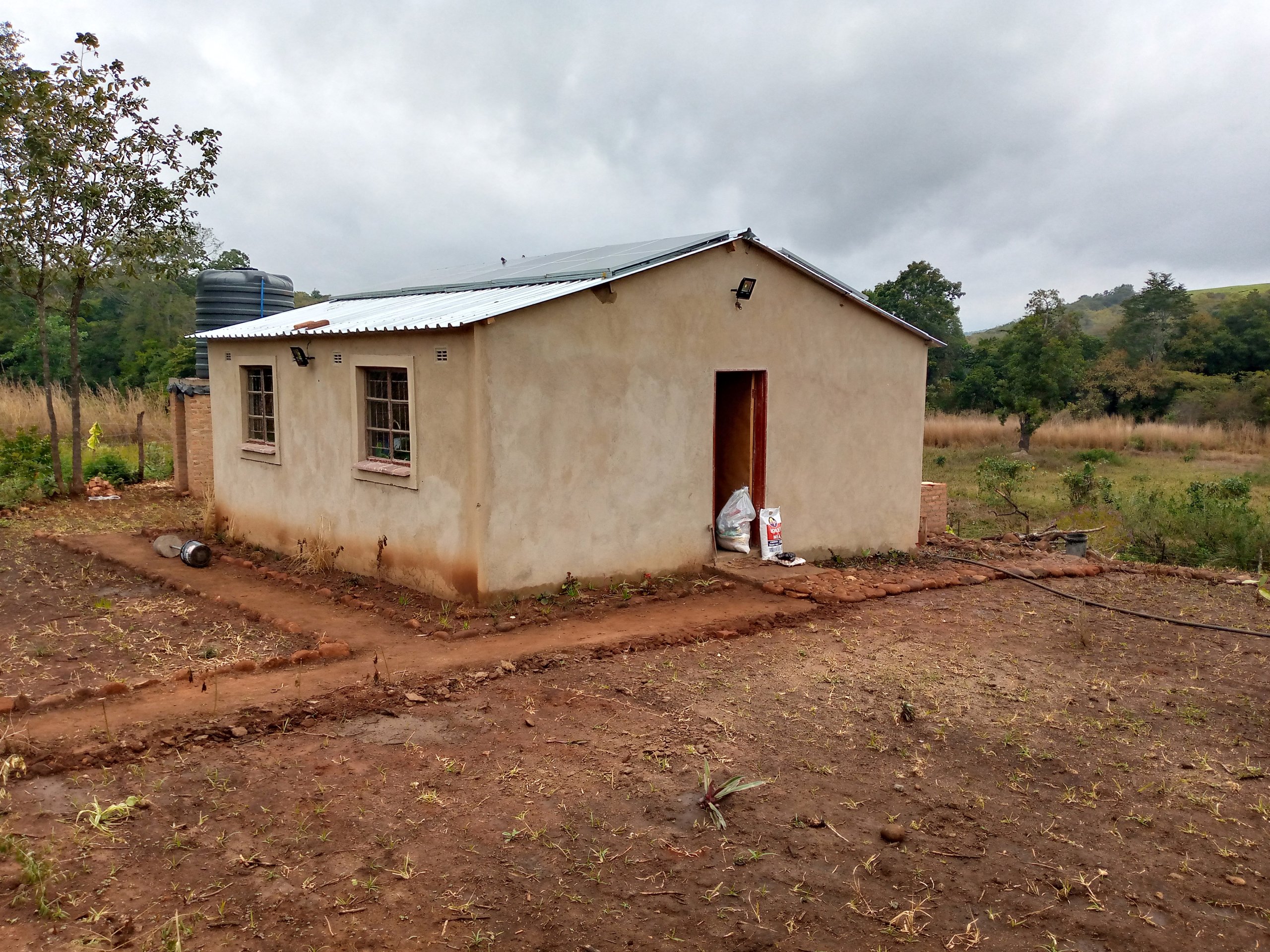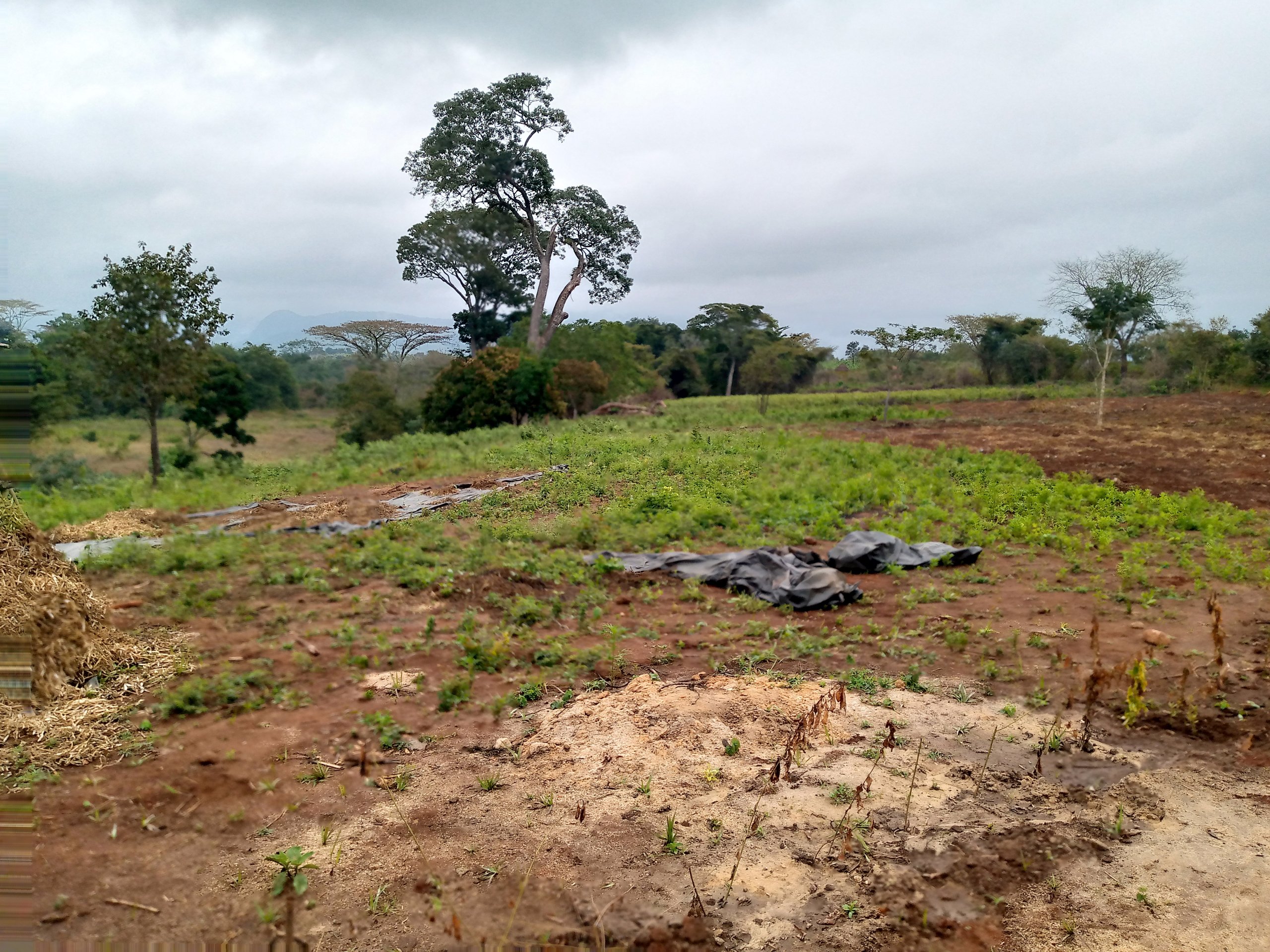Success story: Dumisani
Posted in Young people
15 September 2021
My name is Dumisani Nguni and I graduated in 2019 with a Bachelor of Science Honors Degree in Biotechnology. The graduation was held on the 4th of October 2019 at Chinhoyi University. However now l am into farming in the Honde Valley and l am going to share with you a little information about our farming principles.
We believe that regenerative ecological farming projects can help save our ecosystem and environment from further destruction while being profitable. Our focus is farming of horticultural produce and doing it in an environmental and organic way. The answers to saving the planet might seem complex and out of reach but they are not. Regenerative organic farming/ eco-farming is one of the ways that we can restore our planet. It is rooted in organic farming and abides by a high standard of land management (minimal soil disturbance, cover crops, crop rotation, organic manure, and compost placement) to sequester carbon in the soil. We prioritize in elimination of biocidal chemicals, greater crop profitability, biological diversity and practices that mimic natural ecological processes. The right food (nutrient-dense food, produced organically, with respect for the environment) can also fix our broken food and healthcare systems.
One of the major aspects of eco-farming we are practicing is doing away with synthetic inputs (which enhances climate change noted by high temperatures, disasters and erratic rainfalls leading to food shortages). We are practicing crop rotation which involves planting different types of crops sequentially on the same plot of land to optimize nutrients on the soil and combat pest and weed pressure without the use of synthetic inputs. For example, we have planted beans that have a root network and system that has nitrogen fixation abilities thus returning nitrogen to the soil and the next crop is cabbages which require a fair amount of nitrogen which will then be readily available for the crop. We are practicing diversifying crop rotations. The practice also works to interrupt pest and disease cycles, improve soil health by increasing biomass from different crops’ root structures, and increase biodiversity on the farm. Life in the soil thrives on variety, and beneficial insects and pollinators are attracted to the variety above ground, too.
I believe that a resilient farm economy that allows everyone access to healthy food, clean air and water is a big part of the healthcare system answer. Our aim is to increase the availability of nutrient-dense foods and initiate regeneration of the soil by shifting to a regenerative organic farming system that eliminates toxic inputs and focuses on foods optimal for our health. This will dramatically alter the trajectory of chronic and malnutritional diseases and create a healthier future.
The art of growing crops and raising livestock such as pigs or chickens simultaneously is vital in regenerative eco-farming. The advantage of such a system is a closed-loop nutrient cycle: animals deposit manure, which provides nutrients for crops, eliminating the need for synthetic fertilizer. We are making good compost which is prepared by managing the aerobic decomposition of organic materials like yard debris, grass, leaves, manure etc. A complex community of microorganisms feed on these inputs breaking them down and releasing valuable plant nutrients. We plan to use the compost as mulch or amend to soil prior to planting and this is good for crop yield, soil microbial activity and biodiversity.
Above all l would like to thank you all for the support and generosity you have shown toward me l would not be where l am today without you. God bless you.
Thank you.
Dumisani
Read all News
